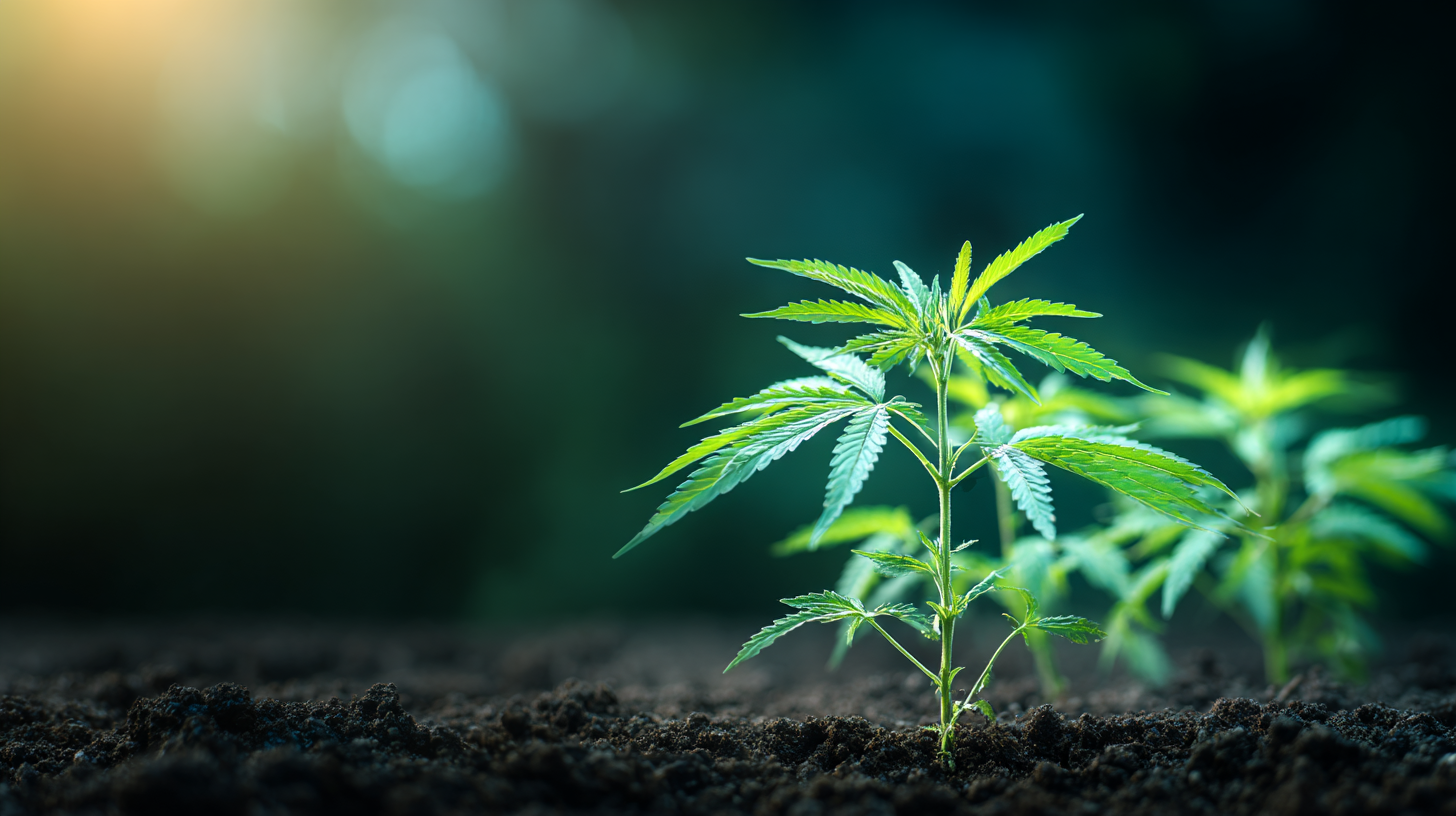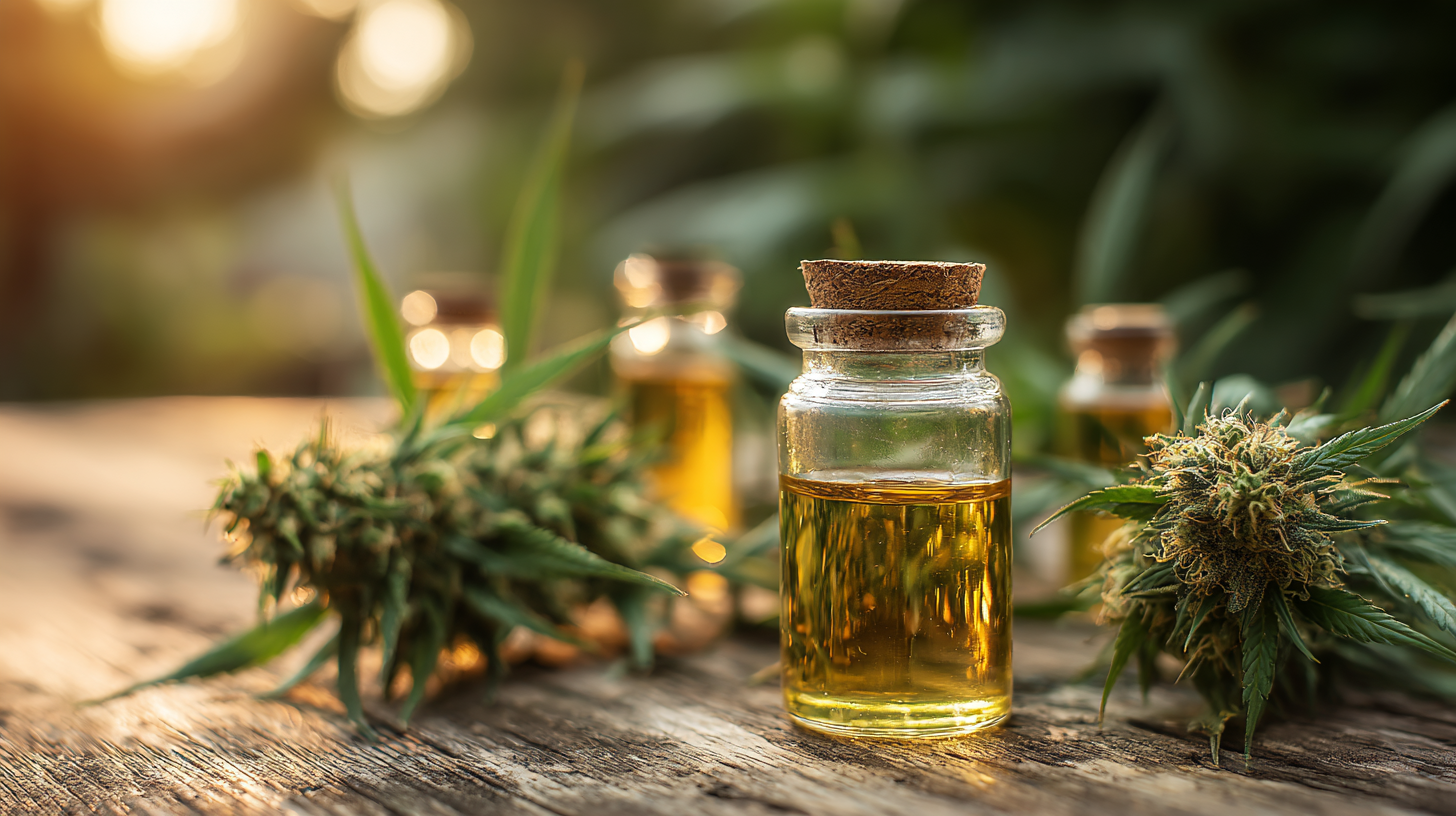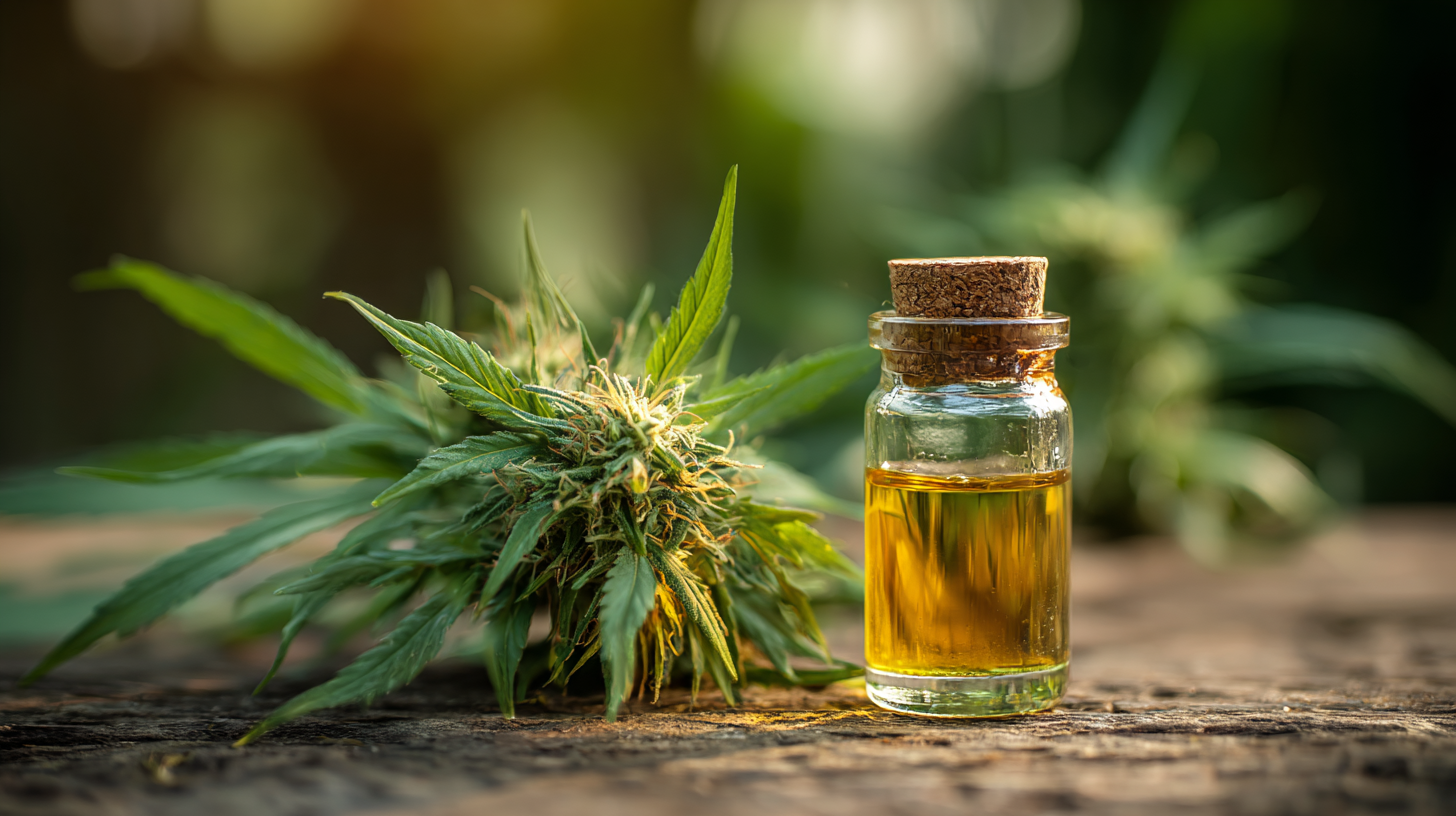
Blog
Future Innovations in Best Cannabidiol From Hemp Industry by 2025
As the hemp industry continues to evolve, Cannabidiol from Hemp stands out as a groundbreaking component that is reshaping the landscape of natural wellness. According to a report by Grand View Research, the global CBD market is expected to reach USD 20.8 billion by 2025, significantly driven by the increasing consumer preference for natural ingredients and the rising awareness of the health benefits associated with cannabidiol. This surge in demand is inspiring innovative approaches to production, extraction, and application of Cannabidiol from Hemp, positioning it at the forefront of dietary supplements and pharmaceutical developments. With advancements in technology and research, the next few years promise to unveil unprecedented opportunities and products that will redefine consumer experiences and industry standards, making it essential to explore the future innovations surrounding this vital compound.

The Growing Demand for Cannabidiol: Market Projections for 2025
The increasing demand for cannabidiol (CBD) has positioned the market for hemp-derived products on a robust growth trajectory. With the global hemp market projected to reach a staggering $38.41 billion by 2025, it's clear that consumers are becoming more interested in the therapeutic benefits of CBD. Analysts anticipate a remarkable compound annual growth rate (CAGR) of 26.55%, potentially boosting the market value to $252.72 billion by 2033. This surge in popularity is driving innovation and expansion across various sectors, particularly in CBD oil and skincare products.
In the CBD oil sector, the market is expected to grow from $911 million in 2024 to $1.16 billion in 2025, with projections indicating it could soar to an impressive $10.93 billion by 2034. Likewise, the CBD skincare market is anticipated to experience substantial growth, with estimates suggesting an increase from $2.02 billion in 2025 to $5.68 billion by 2032, reflecting a CAGR of 15.94%. This data underscores the potential for significant advancements and innovations within the cannabidiol sector, as brands strive to meet the evolving preferences of health-conscious consumers.
Future Innovations in Best Cannabidiol From Hemp Industry by 2025 - The Growing Demand for Cannabidiol: Market Projections for 2025
| Year | Market Size (USD Billion) | Growth Rate (%) | Key Applications | Regions with Highest Demand |
|---|---|---|---|---|
| 2021 | 2.8 | 20% | Health Supplements, Skincare | North America, Europe |
| 2022 | 3.4 | 22% | Food Industry, Pharmaceuticals | North America, Asia-Pacific |
| 2023 | 4.2 | 25% | Medical Research, Food Products | Europe, Asia-Pacific |
| 2024 | 5.5 | 30% | Vitamins, Personal Care | North America, Europe |
| 2025 | 7.0 | 35% | Nutraceuticals, Cosmetics | Worldwide |
Understanding Import and Export Certifications in the Hemp Industry
The hemp industry is rapidly evolving, particularly with the increasing demand for cannabidiol (CBD) products worldwide. Understanding the import and export certifications is crucial for stakeholders looking to capitalize on this burgeoning market. According to a report by Grand View Research, the global hemp-based CBD market is expected to reach $13.4 billion by 2028, underscoring the necessity for compliant operations amidst varying international regulations. For countries looking to export hemp products, possessing the right certifications not only ensures quality but also builds trust among consumers and partners.
To navigate the complex landscape of hemp import and export, it's essential to be aware of several key certifications. The USDA Organic certification, for instance, is vital for accessing premium markets, while the EU's Novel Food regulation must be understood to penetrate European markets effectively. Additionally, the compliance with Good Manufacturing Practices (GMP) is critical for maintaining product safety and quality across borders.
**Tips:** Always stay updated on the latest regulatory changes in the hemp industry, as they can significantly impact your business operations. Engaging with a legal expert specialized in hemp compliance can provide invaluable insights into necessary certifications. Moreover, joining relevant industry associations can open channels for networking and accessing essential resources for navigating certifications.
Future Innovations in Best Cannabidiol From Hemp Industry by 2025
This chart represents the projected growth of the hemp industry in terms of import and export certifications over the next few years, reflecting the increasing demand for cannabidiol (CBD) products.
Digital Transformation: The Role of Technology in Hemp Supply Chains
The hemp industry is undergoing a dramatic transformation, fueled by digital technology that reshapes supply chains from cultivation to consumer. As the demand for cannabidiol (CBD) derived from hemp continues to rise, optimizing processes through technology becomes essential. Internet of Things (IoT) devices, for instance, can enhance crop monitoring, allowing farmers to track soil conditions, moisture levels, and plant health in real-time. This data-driven approach not only increases yield but also ensures premium quality, meeting consumer expectations in a competitive market.

Moreover, blockchain technology is emerging as a powerful tool to enhance transparency and traceability in the hemp supply chain. By recording every transaction and movement, blockchain ensures that consumers can verify the source and quality of CBD products. This level of transparency is crucial in establishing trust, which is often fragmented in the hemp industry. As producers adopt these digital solutions, they enhance operational efficiency and build stronger connections with consumers eager for reliable information about their purchases. Embracing technology will undoubtedly play a pivotal role in the evolution of the hemp industry by 2025, paving the way for a smarter, more sustainable future.
Top Trends Shaping Cannabidiol Products and Consumer Preferences
As the cannabidiol (CBD) market continues to expand, several trends are shaping consumer preferences and influencing the innovations within the hemp industry. One notable trend is the increasing demand for full-spectrum products that offer the entourage effect, which enhances the therapeutic benefits of CBD by including various cannabinoids and terpenes found in hemp. Consumers are becoming more educated about these benefits and are seeking products that provide a holistic experience rather than isolated compounds. This shift is pushing manufacturers to develop more sophisticated formulations that cater to these preferences.

Another significant trend is the rise of sustainability and transparency in the hemp industry. Conscious consumers are more likely to choose brands that prioritize environmentally friendly practices and ethical sourcing. As a result, companies are innovating not only in their product formulations but also in their manufacturing processes. The use of organic farming practices and eco-friendly packaging is becoming essential in attracting a mindful consumer base. As we approach 2025, these shifts towards comprehensive product experiences and sustainable practices are set to redefine the future landscape of the CBD industry, creating a more responsible and consumer-centric market.
Sustainability Initiatives: Eco-Friendly Practices in Hemp Cultivation
As the hemp industry evolves, sustainability initiatives are becoming paramount in hemp cultivation, significantly influencing the production of high-quality cannabidiol (CBD) by 2025. Farmers are increasingly adopting eco-friendly practices, such as crop rotation and companion planting, which not only improve soil health but also reduce the need for chemical fertilizers and pesticides. These methods allow for a more resilient agricultural ecosystem that can withstand the challenges posed by climate change. By prioritizing biodiversity and soil conservation, the hemp industry is not only safeguarding its future - it’s also enhancing the overall quality of the hemp plants used for CBD extraction.
Additionally, the integration of innovative techniques such as regenerative agriculture is gaining traction. This approach focuses on restoring and enhancing the health of farmland, emphasizing practices like no-till farming and cover cropping. By improving soil structure and promoting carbon sequestration, these methods contribute to sustainable farming that benefits both the environment and the crop yield. As consumers grow increasingly aware of the impact of their purchases, the hemp industry is poised to meet demand for ethically sourced, eco-friendly CBD products that emphasize sustainability at every stage of production.



